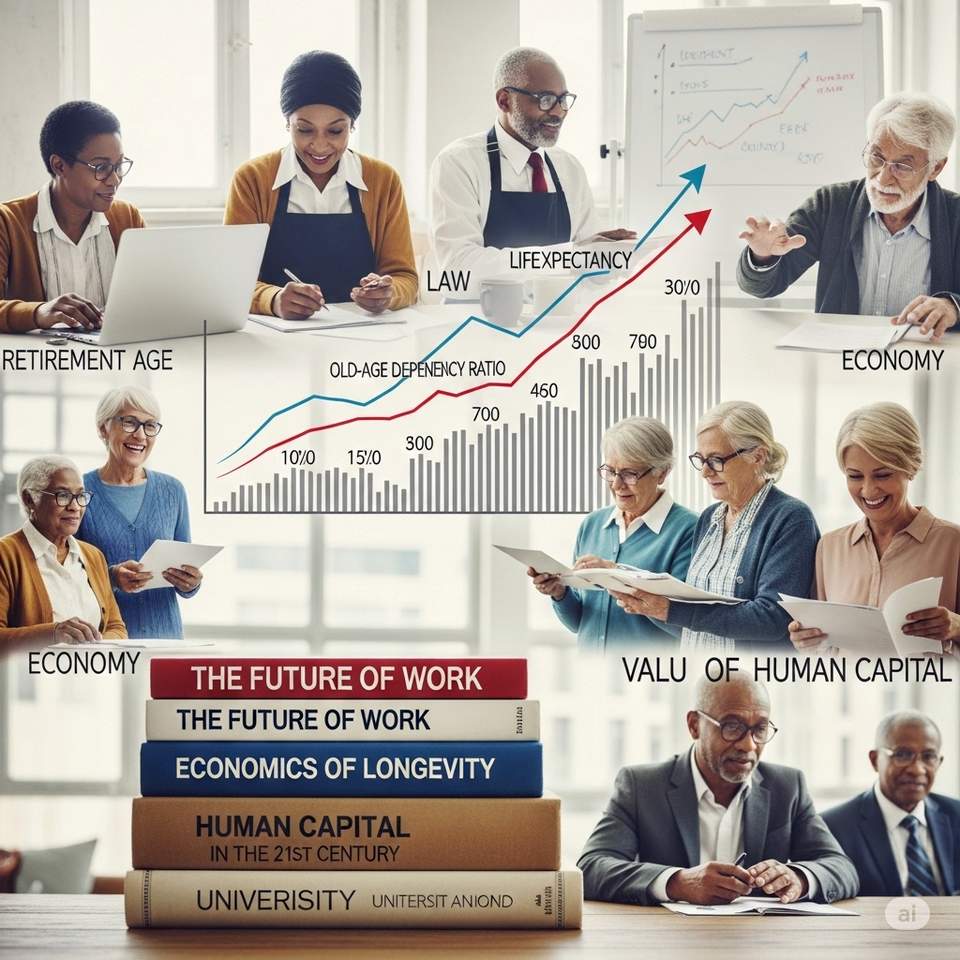 The world faces a demographic shift as longer lifespans and falling birth rates strain pension systems, shrink the labor pool, and challenge businesses to adapt to an aging workforce.
The world faces a demographic shift as longer lifespans and falling birth rates strain pension systems, shrink the labor pool, and challenge businesses to adapt to an aging workforce.
The world is facing an unprecedented demographic transformation. People are living longer, while birth rates continue to fall below replacement levels in many countries. This results in fewer new workers entering the labor market, increasing pressure on state pension systems, and creating challenges for businesses in managing an aging workforce.
Retirement age has therefore become one of the most pressing issues that governments and corporations must address whether to “extend the working age” and keep older workers in the labor market, or to “offer early retirement” and accelerate the transition to younger, digitally skilled employees.
Lessons from Abroad Europe and Japan
In Europe, extending the retirement age has become the standard response. Many countries have raised the age from 60 to 65, and some are now pushing toward 70. The main reason is to protect the sustainability of state pension systems. As people live longer and healthcare costs rise, governments must delay the age at which citizens enter retirement to balance public finances.
Japan, however, has chosen a more flexible path. Instead of focusing solely on extending retirement age, Japan has created opportunities for older adults to continue working in diverse sectors from bus and train staff to convenience store clerks and service jobs. The Japanese approach recognizes that older workers are not merely a burden; with proper management, they remain valuable contributors to the economy and society.
Thailand A Contrasting Direction
Interestingly, Thailand has taken steps in the opposite direction. For example, Kasikorn Bank recently announced a policy allowing employees to retire as early as age 45, effectively enabling early retirement. The rationale is tied to the digital transformation of business. Younger employees who are more familiar with technology are seen as more adaptable, while some senior staff may struggle with digital systems. Early retirement is thus presented as an option to align organizational capacity with future demands.
However, at the macroeconomic level, the question arises Is Thailand truly prepared to manage a workforce of middle-aged people exiting the labor market so early? Without structural measures such as retraining programs or supplementary welfare, the country risks pushing a large segment of its population into retirement status even though they remain physically healthy and capable of working for decades more.
The Legal Perspective
Under Thai labor law, the standard retirement age is set at 60, unless otherwise specified in employment contracts or company regulations. Any change whether raising or lowering retirement age must be clearly agreed upon.
In principle, altering the retirement age is directly tied to the right to work and the dignity of labor. If governments or corporations impose retirement policies without offering flexibility or choice, it risks infringing on fundamental rights and may even lead to labor disputes.
Economic Dimensions
Retirement policy has far-reaching economic consequences
- State Burden: Delaying retirement reduces immediate pension payouts and relieves fiscal pressure. Early retirement, however, increases the duration of state support for retirees, many of whom are still relatively young.
- Employer Burden: Senior employees are more costly but bring experience, networks, and reliability. Younger employees are cheaper but lack the accumulated expertise and organizational knowledge.
- Labor Market Dynamics: Thailand is moving toward labor shortages, especially in skilled sectors. Pushing mid-career workers out too soon could leave gaps in management and professional roles that require decades of experience.
Social Dimensions
Thai society still tends to view retirees as “finished with their duties.” In reality, many people in their 60s and even 70s remain healthy, active, and capable of working. Cutting off their opportunities not only wastes human potential but also creates psychological consequences. Many older people feel undervalued, even though they still possess knowledge, energy, and the willingness to contribute.
Baby Boomers and Gen X Challenges and Strengths
The generations now facing this transition are the Baby Boomers (born 1946 1964) and Generation X (1965 1980), currently aged between 45 and 70. They are often perceived as less digitally savvy, yet they bring significant strengths.
- Strong discipline and responsibility
- Decades of real-world professional experience
- Wide business and social networks
- Patience and the ability to solve complex problems
The real question is whether Thai society will choose to “discard” this potential or to invest in reskilling to extend its value.
Toward a Balanced Approach for Thailand
The experiences of Europe and Japan highlight that there is no one-size-fits-all solution. Thailand needs a system that is both flexible and fair, rather than rigidly enforcing retirement policies. Workers should have the right to choose when to retire within a reasonable age range, such as 55 70. Employers should be encouraged to create positions suitable for older workers, particularly roles requiring experience and credibility rather than physical strength.
Investment should be made in bridging digital skill gaps between generations. Performance evaluation systems should focus on capability, not just age.
 Victor Wong (Peerasan Wongsri)
Victor Wong (Peerasan Wongsri)
Victor Law Pattaya/Finance & Tax Expert
Email: [email protected]> Tel. 062-8795414






